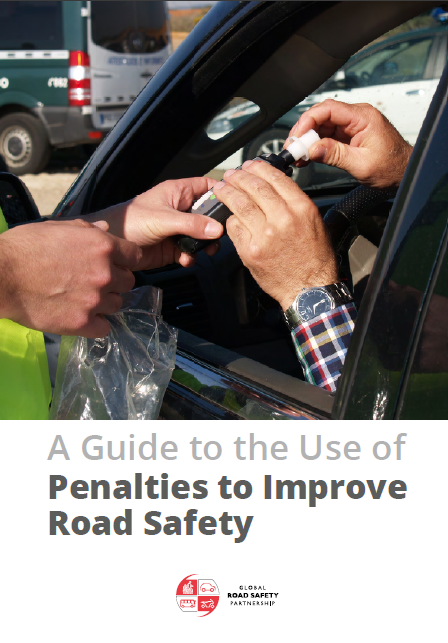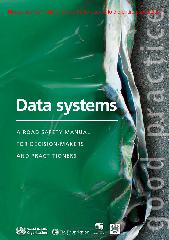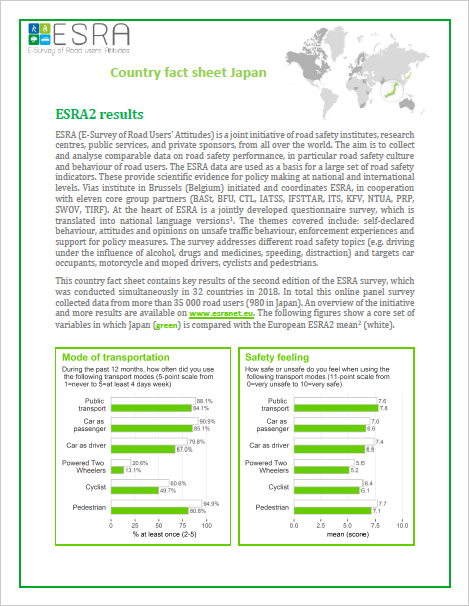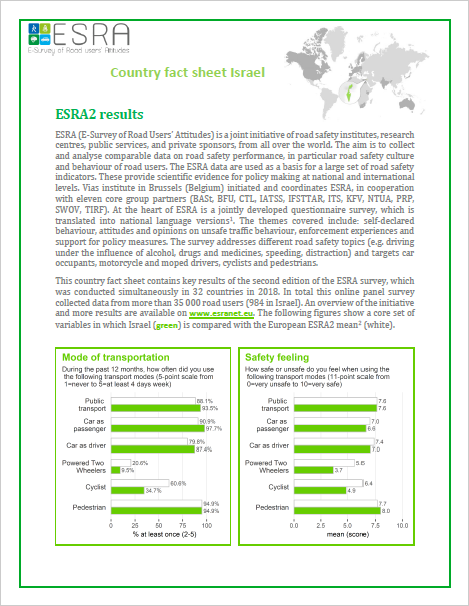Nomination of National Data Coordinators to boost road safety in APRSO member countries

Contact Person
This Guide provides information about different types of penalties that have been applied to traffic offences.
Penalties for traffic offences are a critical component of behaviour change techniques that have been used
extensively with the aim of encouraging road users to comply with traffic laws and to use the road system
safely. Having evidence-based legislation in place is important, but alone, it will not sufficiently deter illegal behaviours. Compliance with traffic laws can be achieved from the combined effects of legislation, increased
public awareness, enforcement, and penalties. This Guide focuses on the penalty component only.
This Guide describes ways in which a robust penalty system may be implemented and draws on international evidence to inform recommendations. It is important to note that there is no pre-defined way to easily determine how severe a penalty should be to deter people from committing a traffic offence. Different penalties are likely to impact people in different ways.
For example, a monetary fine might be meaningful and influential for someone with limited financial resources, yet may have no influence on the offending behaviour of someone who can easily afford to pay the monetary fine. Conversely, a person with greater financial means
may be influenced more effectively by receiving a demerit point penalty than a monetary fine.

Road accidents inflicts high economic costs. This indicator reports economic costs of road accident injuries in USD.
Asian Transport Outlook Database
The fifth good practice manual jointly prepared by WHO, GRSP, the World Bank, and the FIA Foundation focuses on data systems for road safety. Reliable and accurate data are needed for a variety of purposes, including for advocating for road safety, identifying specific problems and risks, setting targets, formulating appropriate strategies and monitoring impact. Road safety data, collected every day in most countries, cannot meet these objectives unless they are properly coded, entered in a system, processed, analysed, disseminated and used.
This manual provides practical guidance for establishing data systems that will improve measurement of a country's road traffic injury problem, facilitate selection of evidence-based interventions, and allow for better evaluation of progress. It discusses the use of such data systems to develop policies and interventions and to assess prevention measures.
The manual presents a conceptual framework for data-led road safety management and presents steps for assessing the availability and quality of existing road safety data. It offers guidance both for making improvements to existing road crash data systems, and for the design and implementation of a new road crash data system.
While stressing the importance of comprehensive data systems that cover not only deaths and injuries from road traffic crashes, but also exposure measures, intermediate outcomes and social costs, the manual acknowledges that most countries are struggling simply to establish quality data systems to document deaths and injuries. The practical guidance related to improving data quality and to improving the effectiveness of data systems therefore focuses mainly on data related to deaths and injuries—and more specifically, on the implementation of a crash database derived from police records. A minimum data set and accompanying definitions for such a database is proposed.

APRSO Annual Meeting Day 2: APRSO member countries set to appoint National Data Coordinators
Contact Person
On day one of the Asia Pacific Road Safety Observatory’s inaugural annual meeting, 130 registered attendees from across 32 member countries and partner organisations gathered on Zoom to discuss the challenge of collecting and collating road safety data for more informed policy making.
ESRA (E-Survey of Road Users’ Attitudes) is a joint initiative of road safety institutes, research centres, government departments, and private sponsors, from all over the world. The aim is to collect and analyse comparable data on road safety performance, in particular road safety culture and behaviours for policy measures.
The ESRA data collected is used as a basis for a large set of road safety indicators. It provides scientific evidence for policy measures at national and international levels. Vias institute in Brussels (Belgium) initiated and coordinates ESRA, in cooperation with eleven core group partners. At the heart of ESRA is a jointly developed questionnaire survey, which is translated into national language versions. The themes covered include: self-declared behaviour, attitudes and opinions on unsafe traffic behaviour, enforcement experiences and support for policy measures. The survey addresses different road safety topics (e.g. driving under the influence of alcohol, drugs and medicines, speeding, distraction) and targets car occupants, motorcycle and moped drivers, cyclists and pedestrians.
This country fact sheet contains key results of the second edition of the ESRA survey, which was conducted simultaneously in 32 countries in 2018. In total this online panel survey collected data from more than 35,000 road users 1043 in the Republic of Korea).

ESRA (E-Survey of Road Users’ Attitudes) is a joint initiative of road safety institutes, research centres, government departments, and private sponsors, from all over the world. The aim is to collect and analyse comparable data on road safety performance, in particular road safety culture and behaviours for policy measures.
The ESRA data collected is used as a basis for a large set of road safety indicators. It provides scientific evidence for policy measures at national and international levels. Vias institute in Brussels (Belgium) initiated and coordinates ESRA, in cooperation with eleven core group partners. At the heart of ESRA is a jointly developed questionnaire survey, which is translated into national language versions. The themes covered include: self-declared behaviour, attitudes and opinions on unsafe traffic behaviour, enforcement experiences and support for policy measures. The survey addresses different road safety topics (e.g. driving under the influence of alcohol, drugs and medicines, speeding, distraction) and targets car occupants, motorcycle and moped drivers, cyclists and pedestrians.
This country fact sheet contains key results of the second edition of the ESRA survey, which was conducted simultaneously in 32 countries in 2018. In total this online panel survey collected data from more than 35,000 road users 980 in Japan).

ESRA (E-Survey of Road Users’ Attitudes) is a joint initiative of road safety institutes, research centres, government departments, and private sponsors, from all over the world. The aim is to collect and analyse comparable data on road safety performance, in particular road safety culture and behaviours for policy measures.
The ESRA data collected is used as a basis for a large set of road safety indicators. It provides scientific evidence for policy measures at national and international levels. Vias institute in Brussels (Belgium) initiated and coordinates ESRA, in cooperation with eleven core group partners. At the heart of ESRA is a jointly developed questionnaire survey, which is translated into national language versions. The themes covered include: self-declared behaviour, attitudes and opinions on unsafe traffic behaviour, enforcement experiences and support for policy measures. The survey addresses different road safety topics (e.g. driving under the influence of alcohol, drugs and medicines, speeding, distraction) and targets car occupants, motorcycle and moped drivers, cyclists and pedestrians.
This country fact sheet contains key results of the second edition of the ESRA survey, which was conducted simultaneously in 32 countries in 2018. In total this online panel survey collected data from more than 35,000 road users (984 in Israel).

Pagination
- Page 1
- Next page